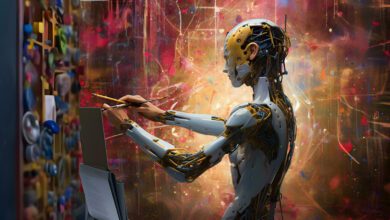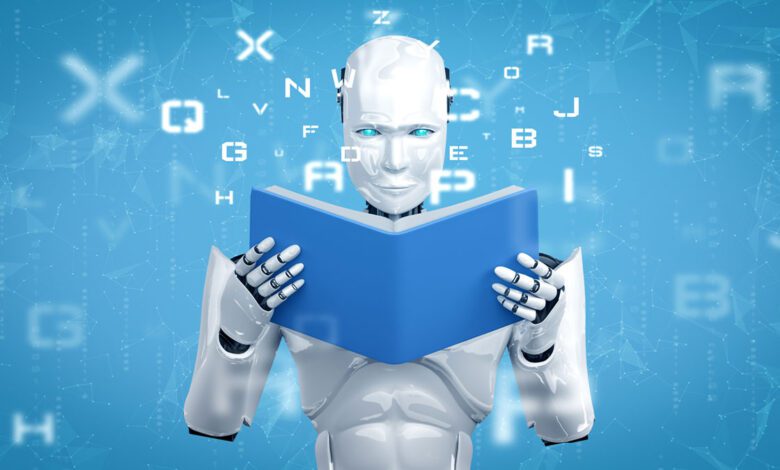
Revolutionizing Education Assessment with AI Grader for Superior Learning Outcomes
One new technology that is creating waves in all schools includes AI graders. Education and technology are changing rapidly and accelerating, and they can change the conventional methods of learning and teaching AI pupils. The idea has intrigued educators due to its potential to revolutionize the assessment process and help students gain from more customized and efficient assessments. Through this thorough examination of AI, students can see their impact on education and the numerous ways they’re likely to alter how learning is conducted shortly.
The Intensity Of “AI Graders” The Education
Reducing Teacher Workloads
People regularly speak about how a lot of painting instructors have. They must address many assessments, assignments, and grading, which takes time and power. This work is essential, but it could forestall teachers from doing other cool things like making laugh lessons or spending time with students one-on-one. AI graders assist instructors by doing the uninteresting process of grading assessments so they have extra time for other stuff.
Consistency across the board
Teachers once in a while struggle to offer honest grades to every person because they might have their very own evaluations or biases. However, AI graders always follow the same policies to provide truthful grades to everyone. It doesn’t matter who participates in the test; the grades will be equal.
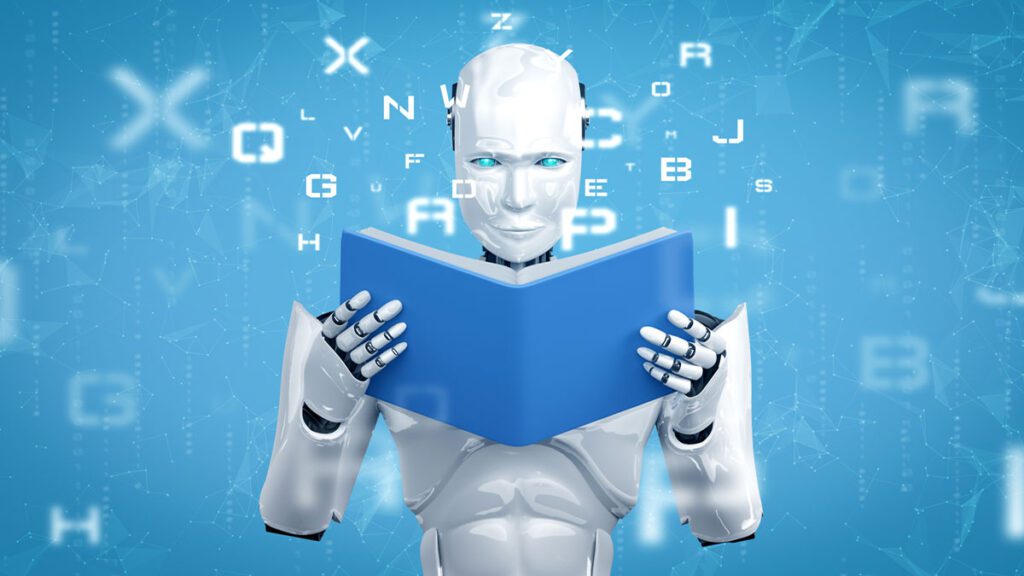
Detailed, Yet Swift Feedback
AI graders do more than supply grades. Their attention is on getting to know everyone better for everyone. They give beneficial comments to college students by understanding them quickly and easily. Getting remarks right away enables students to see and fasten their mistakes. It facilitates them to feel more positive about their studying.
It’s Capacity To Evolve Into The Digital Age
More and more, colleges are using digital gear for teaching. Using these tools is essential if you want to deal with large classes and exams. AI graders are virtual tools that can cope with plenty of labor without slowing down, no matter how much there is.
Honest Evaluations, As Well As An Evaluation Of The Free of Bias
One of the most significant achievements that AI instructors could achieve is eliminating human biases. They analyze students’ actions solely based on data and develop guidelines not influenced by gender, race, or other identifiable characteristics. It guarantees that each student is evaluated impartially and fairly and by the highest standards of ethical conduct in education.
Learning Loop Accelerated Learning loop Accelerated.
Speed, or the speed with which AI graders finish their work and offer more tests, is anticipated to be their most prominent feature. The speed at which they can turn around will close the loop of feedback students are caught in and allow students to learn the lessons they learned from and win quickly. The speed at which the learning loop is completed is crucial and provides an ongoing cycle of development, assessment, and learning.
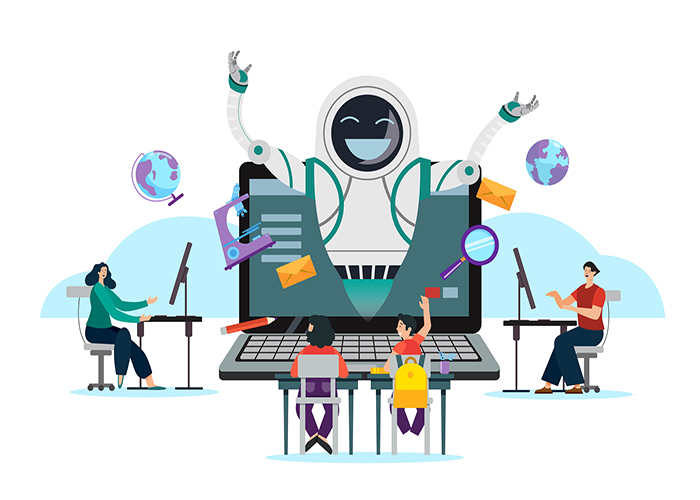
AI Graders from the Language and Writing Domains
Writing and language evaluation pose unique problems due to how it is conducted. AI graders gain knowledge by imparting an objective assessment; however, they stay aware of the details of language and writing and how to write.
Language Assessment using Nuance
Checking how suitable a person is at a language requires understanding tons of grammar, words, and context. AI graders are trying to find these objects in writing. They do now not sincerely find errors; they deliver unique comments. It’s additionally essential to look at how correct someone is with language. AI graders are undoubtedly true at recognizing even small mistakes in language.
Fostering Writing Excellence
AI graders are like editors and instructors for writing. They check how well the writing is written and if it makes them enjoy it and has proper grammar. They, moreover, deliver guidelines to make writing better, mentioning what’s correct and what artwork is desired. AI teachers can help college students improve at writing essays and saying what they suggest.
Feedback In AI
Feedback is designed to stimulate constructive feedback positively. This is why AI graders are required to help by providing only feedback that encourages the students to improve and motivates students to keep improving.
Multiple Assessment Criteria
AI graders focus on the last result and consider the diverse aspects when making their remarks. Beginning with the shape and content, they shift to argument and grammar. Their feedback accommodates diverse evaluation criteria that benefit college students by increasing their know-how and capacity to realize the subject.
Individualized Responses Individual Growth
Each student is precise and has incredible strengths and regions to increase. AI graders recognize this and adjust the facts to present specific responses appropriate to each scholar. This individualized approach gives the influence that you are being diagnosed and boosts motivation and encouragement. All of these are vital to the student’s educational improvement.
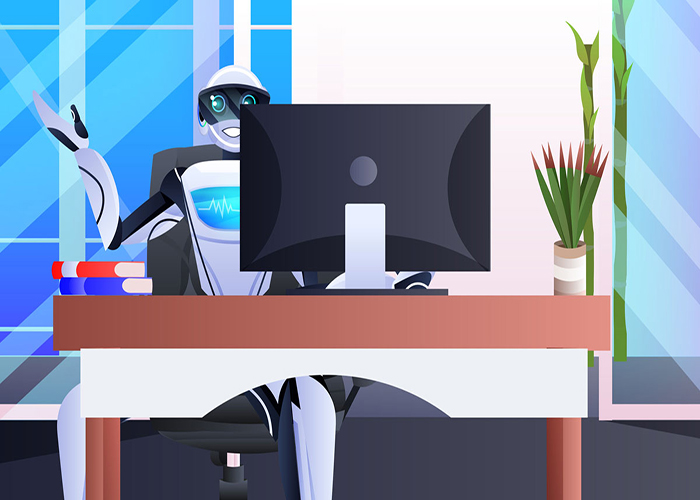
The Limits for Artificial Graders
Although this is undoubtedly proper, the abilities of AI graders are sizable. However, it’s essential to be aware of and apprehend the constraints of inexperienced persons. In understanding the limitations of this generation, it is necessary to ensure that it is delivered to the modern-day strategies of guidance rather than to update the existing techniques.
The Data Dilemma
AI graders’ effectiveness depends on the accuracy and truthfulness of the facts they get hold of all through education. If the records inputs were biased, the last product would replicate that bias, which could cause an erroneous assessment. It is crucial to scrutinize and study the facts used to power AI graders to ensure they create accurate details.
Inviolate Human Elements Inviolate Human Element
Teachers do more than supply grades. They educate, encourage, and assist college students to develop their minds. AI graders should not update instructors. Instead, they can make grading much less complicated for instructors so that they may be aware of the elements of teaching that require human contact.
AI’s creation to AI in lecture rooms has introduced ethical concerns. Many are concerned about safety, equity, privacy, and the broader effect on society as a result of technological advancements and academic applications.
Security Data integrity and security
Using AI to grade ought to make getting to know each student’s form better. Students get comments; if you need to study it better, it’s far just for them. Adjusting AI structures ensures university college students get the proper help for what they can do, so how they analyze works for them.
Set the Flag to identify bias.
In the AI era, students aren’t protected from biased consequences. They make decisions based on the data they examine, which could bring a biased payoff. Researchers and educators must collaborate to expand AI graders educated from various neutral and numerous information sources that lessen the possibility of bias resulting from algorithms and ensure that they deliver correct grades.
An Environment for Learning Environment With Risk
Using closely reliant AI graders should limit your getting-to-know enjoy to a human stage and prevent interaction among students and teachers from gaining a range of rankings. It is vital to take an objective view of how generation can assist instead of hindering the studying and enriching stories that instructors can gain from.
Complete Classrooms
Considering how college might be distinct quickly, consider lessons where AI helps teachers and students. AI can assist with grading so instructors can spend more time supporting college students in their research. This teamwork should make gaining understanding more excellent fun. Students get better at learning with each AI and instructors helping them.
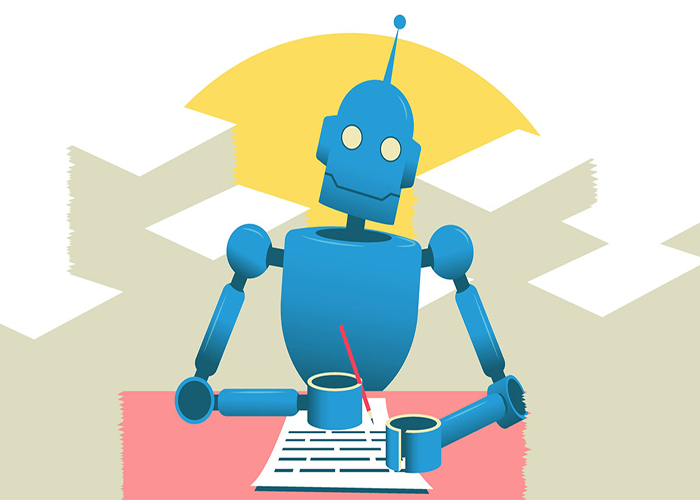
Touch the teacher’s finger.
AI graders will always be more accurate than human teachers at sensing emotions, recognizing feelings, and supporting individuals. It’s impossible to tell what students are feeling or provide the type of individual guidance that improves students’ confidence and helps them achieve better. As long as teachers remain the primary teachers, AI can benefit and make learning an environment that is also adaptable and tolerant.
- The impact of artificial Graders on the learning of the student
It’s the introduction of AI graders into the education system. It has resulted in various changes that have changed students’ learning experiences and outcomes.
Individualization and also the ability to alter
Utilizing AI for grading can help create learning experiences customized to meet the individual needs of each student. Students receive feedback that is specific to them and enable them to take a more active role in their education—adjusting AI systems to warrant that students get the correct benefit according to their capabilities and ensuring that the learning environment meets each student’s requirements.
Complexity Tweezed
The new AI graders can do more brutal stuff like tests, problematic writing tasks, or questions without a clear answer. They can inform how accurate and one-of-a-kind a scholar’s writing is, not just provide a grade. These changes will make AI graders better and more helpful in one-of-a-kind school conditions.
A Prioritization for Ethical Use
The future of AI graders depends on ethics. As the era grows, developers want to think about the risks and be honest and truthful when making and using AI. It protects colleges from any terrible things that might occur with uncontrolled generation.
Seamless Integration
Future AI graders will combine seamlessly with present educational systems and Learning Management Systems (LMS). This integration will facilitate a green and seamless use of AI technology. It may even offer instructors a clean and user-friendly device to resource their teaching.
Conclusion
The outcomes of AI on college students in training are many and could improve how tests are finished, supplying higher mastering chances. Though they’ve troubles, in addition, they carry up moral concerns. But they’re a nice flow forward. Bringing in the era is an interesting new step in education. It has to be checked out carefully, and we should use technology to make existence higher for every person.
Frequent Asked Questions (FAQ’s)
What are the most common myths about AI students?
There’s a widespread belief that AI graders could replace human instructors in grading. Though skilled in certain areas, such as graded tests with different choices, they must be equipped to handle more difficult or complex subjects. Another myth is that AI graders are impervious. AI graders can’t make errors. They’re vulnerable to failing, specifically when handling subjects not protected within the training the graders obtained or if they fail to observe their rules.
What does it mean for how AI grades affect a school’s quality?
AI graders can enhance how properly college students analyze by giving them feedback that is continuous, accurate, sincere, and tailor-made to each scholar. These short comments help college students to examine higher and get a first-rate education.
Which is the most accurate method that teachers can be assured that the material is utilized in a fair, equitable way for AI 3rd graders?
Teachers should be careful when using AI with college students, ensuring college students only depend somewhat on it and checking if it is reliable. They can also help ensure the systems are stable by increasing and checking the algorithms used to evaluate the records that train the AI.
Have you ever been concerned about the ubiquity of AI students at institutions?
Using AI to grade student work in HTML0 has precipitated issues of privateness, biased algorithms, and insufficient need for human involvement in education tech. Establishing guidelines to protect student data and ensure responsible use of AI in classrooms is crucial for addressing these issues.



